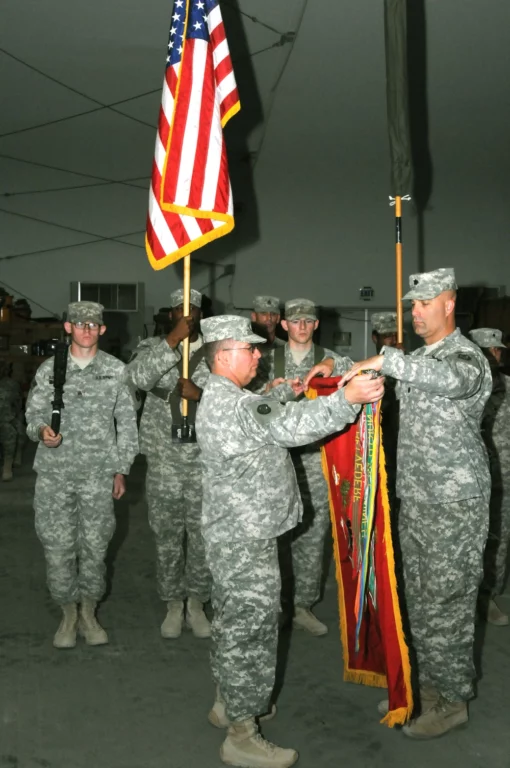
Vice Presidential candidate Tim Walz, the sitting governor of Minnesota, is in hot water today with veterans groups across the country over a false military claim that is a textbook case of stolen valor.
Stolen Valor is when you embellish your military service record and achievements to impress or glorify your service. It is not only frowned upon by veterans, it can also be illegal if he gains any rewards from the embellishment.
Walz has falsely claimed that he had carried a weapon in war. Although he served in the U.S. Army National Guard, Walz never went to war. In fact, when his unit deployed to Iraq, Walz quit the army, abandoning the soldiers in his command.
“I spent 25 years in the Army and I hunt,” Walz said. “I’ve been voting for common sense legislation that protects the Second Amendment, but we can do background checks. We can research the impacts of gun violence. We can make sure those weapons of war, that I carried in war, are only carried in war”
The key stolen valor prhase is, “That I carried in war.”
In a fiery exchange that has stirred up the political scene, JD Vance has openly criticized Governor Tim Walz, accusing him of “stolen valor” and questioning his commitment to his military unit and the country.

Vance, a Marine and current political figure backed by Silicon Valley, responded to Walz’s remarks that implied Vance’s elite education and backing made him part of the very elite class he opposes.
Vance retorted by emphasizing his humble beginnings and the hard work that led him through college and law school, representing what he considers the essence of the American dream. He expressed disbelief at Walz’s attempt to frame his background negatively, suggesting that such a perspective was bizarre and out of touch with the core values of the American public.
The controversy centers on personal attacks and profound discrepancies in military records and public statements. Vance pointed out that while he served honorably in Iraq when called upon by his country,
Walz allegedly withdrew from deployment at a critical moment. According to Vance, Walz prepared with his unit, the 1-125th Field Artillery Battalion, for a deployment to Iraq but resigned his commission just as the unit was about to be mobilized. This action, Vance claims, left the unit without its senior Non-Commissioned Officer and was seen by many, including retired Command Sergeant Major Thomas Behrends, as a betrayal.

“What really bothers me about Tim Walsh, it’s not even the positions that he’s taken, though certainly he has been a far left radical. You know what really bothers me about Tim Walsh as a Marine who served his country in uniform?” Vance said. “When the United States Marine Corps, when the United States of America asked me to go to Iraq to serve my country, I did it. I did what they asked me to do, and I did it honorably, and I’m very proud of that service.”
Behrends has been vocal about Walz’s military career, noting that while Walz served for 24 years, his record did not include active combat or deployment in the Global War on Terror theaters, contrary to some of his public claims. He highlighted that Walz’s only deployments were to Italy and Norway and that Walz retired from the National Guard right before his unit was set to deploy to Iraq.

“‘In early 2005, a warning order was issued to the 1-125th Field Artillery Battalion, which included the position he was serving in, to prepare to be mobilized for active duty for a deployment to Iraq,” Behrends said. “On May 16th, 2005, he quit, betraying his country, leaving the 1-125th Field Artillery Battalion and its Soldiers hanging, without its senior Non-Commissioned Officer, as the battalion prepared for war.”

The dispute further deepens with Vance criticizing Walz for comments made about gun control, where Walz referenced carrying “weapons of war” during his service—statements that Vance and others have challenged due to Walz’s non-combat military record.
“When Tim Walsh was asked by his country to go to Iraq, you know what he did? He dropped out of the army and allowed his unit to go without him, a fact that he’s been criticized for aggressively by a lot of the people that he served with. I think it’s shameful to prepare your unit to go to Iraq to make a promise that you’re going to follow through, and then to drop out right before you actually have to go. I also think it’s dishonest,” Vance added.
Vance’s accusations have stirred significant controversy and discussions about the integrity and honesty of political figures regarding their military service, especially in times of increasing scrutiny over the authenticity of such claims. The implications of these accusations are profound, touching on issues of trust, leadership, and the responsibilities of those in power.

The political ramifications are significant as Vance’s comments come at a time when both figures are prominent in their respective roles. Vance’s criticisms reflect a broader debate over military service’s role in political credibility and leadership, particularly as both men continue to shape their political narratives in the face of public scrutiny.
As the situation unfolds, the public and media are closely watching both figures, anticipating further clarifications or rebuttals. The discussions around these accusations are expected to influence public opinion, potentially affecting both Vance’s and Walz’s future political prospects.
About the author: Phil Stilton is a veteran of the United States Marine Corps (1991-1995).


